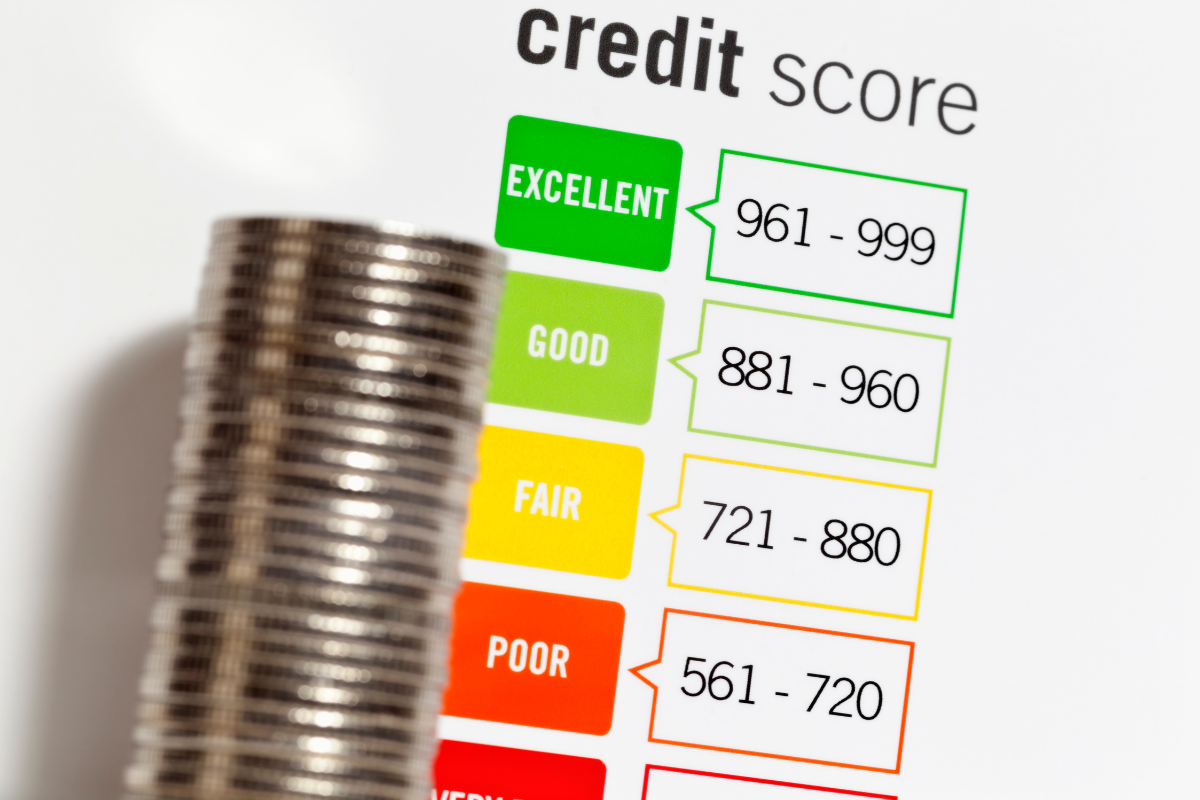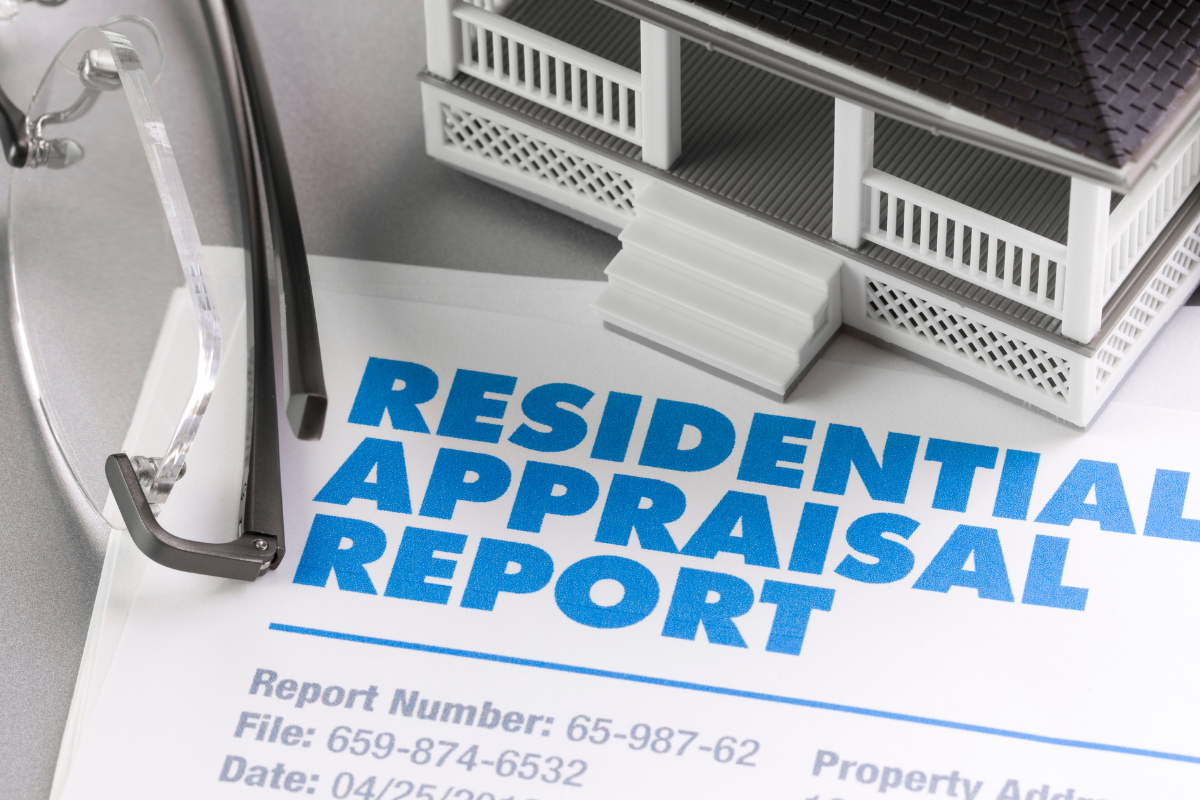How To Buy A House In California in 13 Steps
Are you looking for information on how to buy a house in California? You've come to the right place! Here, we'll walk you through some important steps to take when purchasing a home in the Golden State, and the options you have for financing.
Here are the steps we'll cover in more detail:
You can also jump to the end for some of our FAQs on how to buy a house in California.
1. How To Buy A House In California: Understand The Legal Requirements
The first step in how to buy a house in California is understanding the legal requirements. Buying a house always comes with some sort of legal obligation, and this is especially true when you're purchasing property in another state. When it comes to California, there are a few key things you should know:
- You must be at least 18 years old to purchase a home in California.
- You must have the right to live and work in the United States.
- You must have the financial resources to cover the down payment, closing costs, and other associated fees.
If you meet all of these requirements, you're well on your way to becoming a homeowner in California!
2. Research And Understand Your Financing Options (Including For First Time Home Buyers)

The next step in how to buy a house in California is researching and understanding your financing options. There are many different ways to finance a home purchase, and the right option for you will depend on your individual circumstances.
For example, there are special programs available for first-time homebuyers in California. If you're a veteran of the armed forces, you may also be eligible for special financing. And if you have good credit, you may be able to take advantage of low interest rates.
No matter what your situation is, it's important to explore all of your financing options before moving forward with a purchase. A good real estate agent will be able to help you understand your options and choose the best path forward.
Some of the most popular loan programs in California include:
CalFHA Conventional Loan Program
The CalHFA uses third-party lenders to lend money to homebuyers.
There are various requirements for this type of loan. These include:
- Completion of a homebuyer education course
- The property must be your primary residence. The home must also be a single-family residence with only one unit. Manufactured housing is also allowed with this loan type.
- Borrowers must also be under income limits to qualify. These vary based on the county but range from around $150,000 annually to $300,000. You can check your prospective county limits here.
While these are requirements for the program, your mortgage lender may have their own requirements as well.
CalHFA FHA Program
The CalHFA also offers an FHA loan program.
FHA loans are federally-backed and have more flexible requirements than conventional loans. They're a good option for first-time homebuyers or those with lower credit scores.
Some of the requirements for this type of loan include:
- The completion of a homebuyer education course
- The property must be your primary residence
- The home must also be a single-family residence with only one unit. Manufactured housing is also allowed with this loan type
- Like with the conventional, borrowers must also be under income limits to qualify. These vary based on the county but range from around $150,000 annually to $300,000. You can check your prospective county limits here.
CalPLUS FHA Program
The CalPLUS FHA program is a first-time homebuyer program that's offered through the California Housing Finance Agency.
It offers a 30-year fixed-rate loan with a low down payment and flexible credit requirements.
Some of the requirements for this type of loan include:
- The completion of a homebuyer education course
- The property must be your primary residence
- The home must also be a single-family residence with only one unit. Manufactured housing is also allowed with this loan type. Condominiums are also allowed if they meet the guidelines.
- Like with the other programs, borrowers must also be under income limits to qualify. These vary based on the county but range from around $150,000 annually to $300,000. You can check your prospective county limits here.
CalHFA VA Loan Program
The CalHFA VA Loan Program is a 30-year fixed interest mortgage available to current military, veterans of the armed forces or eligible spouses who are looking to purchase a home in California.
There are a few key benefits to this type of loan, including:
- No down payment is required.
- No private mortgage insurance is required.
- The interest rate is often lower than with other loan types.
To be eligible for this program, you must:
- Occupy the property as your primary residence
- Complete a homebuyer education course
- Be current military or veteran of the armed forces.
- The home must also be a single-family residence with only one unit. Manufactured housing is also allowed with this loan type. Condominiums are also allowed if they meet the guidelines.
- Have served at least 90 consecutive days during wartime, or 181 days during peacetime.
- Receive an honorable discharge.
- Pay a funding fee
- Present a certificate of eligibility based on the VA guidelines
- Borrowers must also be under income limits to qualify. These vary based on the county but range from around $150,000 annually to $300,000. You can check your prospective county limits here.
- Like with the CalFHA program, your mortgage lender may have their own requirements as well.
CalHFA USDA Loan Program
The CalHFA USDA Loan Program is a 30-year fixed interest loan available to eligible rural homeowners in California. It can also be combined with MyHome (the MyHome Assistance Program), which we'll cover next.
USDA income limits are a bit more restrictive than the other loans.
To be eligible for this program, you must:
- Occupy the property as your primary residence
- Complete a homebuyer education course
- The home must also be a single-family residence with only one unit. Manufactured housing is also allowed with this loan type. Condominiums are also allowed if they meet the guidelines.
- The property must be located in a rural area as defined by the USDA. Eligible areas can be found here.
MyHome Assistance Program
The MyHome Assistance Program is a deferred payment junior loan that can be used in conjunction with the CalHFA USDA Loan Program, as well as the CalPLUS FHA Loan Program and the CalHFA VA Loan Program.
The loan provides up to 3.5% of the sales price or appraised value, whichever is less, in the form of a silent second mortgage with deferred payments.
To be eligible for this program, you must:
- Be a first-time home buyer. This doesn't necessarily mean you can't have ever owned a home. A first-time homebuyer status "resets" if you haven't owned a home in three or more years.
- Occupy the property as your primary residence
- Complete a homebuyer education course.
- The home must also be a single-family residence with only one unit. Manufactured housing is also allowed with this loan type. Condominiums are also allowed under certain guidelines.
Down Payment Toward Equity Act
Biden's Down Payment Toward Equity Act was introduced in July of 2021 in the House and went to the Senate in September of the same year.
Currently, as of August 2022, there are hearings being held in the Senate for enacting this law.
The Act will provide first-time home buyers up to $25,000 cash towards a down payment on a home, or towards closing costs or point payments.
The program, if enacted, will require:
- Recipients must be first-time home buyers
- You must be lower to moderate income
- The home must be your primary residence
- You must use a mortgage that is government-backed.
The program can not be used to purchase an investment property or any home that is not a primary residence.
3. Save For A Downpayment
The amount of down payment you'll need for your house will vary based on your mortgage lender and the loan type you choose.
For conventional loans, you'll generally need a minimum of 5% down. For FHA loans, 3.5% is the minimum down payment. If you're using a VA loan, then no down payment is required.
USDA and CalHFA loans have their own specific down payment requirements as well. If you don't have the minimum down payment saved, there are a few ways to come up with the money.
You can take out a personal loan or tap into your 401k. You can also look into down payment assistance programs.
How does down payment assistance work in California?
There are a few down payment assistance programs available in California.
The most popular program is the MyHome Assistance Program, which we already covered.
Other programs include:
- CHDAP (California Homebuyer's Downpayment Assistance Program)
- CSHHP (California Self-Help Housing Program) - for building a home with your own labor.
Who qualifies for down payment assistance in California?
To be eligible for most of these programs, you must:
- Be a first-time home buyer or have not owned a home in the past three years
- Meet income requirements
- Complete a homebuyer education course
You'll also need to apply for the program and be approved before you can receive any assistance.
The amount of assistance you can receive varies based on the program, but most programs will provide 3-5% of the loan amount in down payment assistance. The minimum down payment for a house in California will vary based on your loan, but you can expect it to be from 0% (for VA) to 5% (for conventional).
4. Check And Understand Your Credit Score

Before you head to a lender or talk to a mortgage company and allow them to check your credit, it's important to check it yourself first.
You're entitled to one free credit report per year from each of the three credit reporting bureaus: Equifax, Experian, and TransUnion. You can get your free report at AnnualCreditReport.com.
Once you have your report, go over it carefully and dispute any errors that you find. If there are any derogatory marks, try to get them removed. If you find something erroneous, here are the steps you can take to dispute.
Your credit score is important because it's one of the factors that lenders will look at when considering your loan application. A higher credit score means you're a lower-risk borrower, which could lead to a lower interest rate on your loan. A lower credit score could lead to a higher interest rate or you may not even be approved for a loan.
There are a couple of different credit scores. A FICO score and a VantageScore.
FICO scores range from 300 to 850 and are the most widely used scores by lenders.
VantageScores range from 501 to 990 and are becoming more popular with lenders.
You should be aware of the different things that can affect your credit score. These include:
- Payment history - This is the biggest factor and it includes things like whether you make your payments on time, how often you're late, and how delinquent your payments are.
- Credit utilization - This is how much of your credit limit you're using. It's generally recommended to keep your credit utilization below 30%, but you can get approved with a higher percentage.
- Length of credit history - A longer credit history is generally better. It shows lenders that you're a responsible borrower.
- Types of credit used - This includes things like credit cards, retail accounts, installment loans, and mortgages.
- Hard inquiries - These are inquiries that are made when you apply for new credit. Too many hard inquiries can hurt your score.
What is the minimum credit score to buy a house in California?
This varies based on the lender, but in general, a credit score above 600 can secure you a home loan.
5. Determine How Much Home You Can Afford
The next step to know how to buy a house in California is knowing what you can actually afford.
To do this, you'll need to figure out how much money you'll have for a down payment and how much your monthly mortgage payments will be.
You can use our online mortgage calculator to help you with this.
Start by sliding the bar to the home value you'd like to investigate. Then enter the percentage or amount of down payment you'll want to provide. Next, consider the length of your loan (30 years is the norm). Estimate an interest rate based on current rates and what you know about your credit. Include a percentage or monetary value for one-time expenses, and when you predict your loan would start.
Our calculator will give you a payment breakdown based on estimated HOA fees, PMA, property taxes, homeowners insurance and the principal and interest. You'll then be able to determine if this monthly payment is doable for you and your family, and what needs to be adjusted if not.
6. Get A Mortgage Pre-Approval
Now that you know how much home you can afford, it's time to get a mortgage pre-approval.
A mortgage pre-approval is a letter from a lender that indicates how much money you can borrow for a home purchase. It also shows how much your monthly payments will be and the interest rate you'll pay on the loan.
Getting a mortgage pre-approval is a good idea for several reasons. It shows sellers that you're a serious buyer and that you have the financing in place to purchase their home. It also allows you to lock in an interest rate for a certain period of time, which can save you money if rates go up.
To get a mortgage pre-approval, you'll need to provide the lender with some information about your employment, income, debts, and assets. Information and paperwork you'll need to have available are:
- Employment history for the past two years
- W-2 forms from the past two years
- Bank statements from the past two months
- List of debts and minimum monthly payments
- Driver's license or other government-issued ID
- Social security number
You'll also need authorization for them to pull your credit report.
7. Partner With The Right California Real Estate Agent
When you're ready to start looking for a home in California, it's a good idea to partner with the right real estate agent. The great part is, real estate agent commission in California is paid for by the seller - so using a buyer's agent is at no cost to you. So it's incredibly beneficial to utilize an expert's knowledge.
A buyer's agent can provide you:
- Access to the Multiple Listing Service (MLS). This is a database of homes that are for sale in your desired area. This is the "official" database and is generally more up-to-date and accurate than third-party sites such as Zillow.
- Comparative market analysis. This is a report that shows how much similar homes in your area have sold for.
- Negotiation expertise. A buyer's agent will negotiate on your behalf to try to get you the best possible price on a home.
- Contract expertise. A buyer's agent will help you navigate the contract and make sure that everything is in order.
A good agent will also be familiar with the area you're interested in and will be able to help you find homes that meet your needs. They'll also be able to provide you with information about the local market and help you determine the best offer price for the home you'd like.
At Fisher Real Estate, we have over 16 years of experience in the real estate industry to provide top-notch service. We are committed to fulfilling your real estate needs utilizing our outstanding resources and knowledge. Have questions? You can chat with us right on our website, or schedule a call right online.
8. Find The California Home Of Your Dreams

Start with your wishlist for your new home, and prioritize your must-haves vs your wants. Some things to consider include:
- Size of the home, including the number of bedrooms and baths
- Location (if you're looking around Los Angeles, here are some of the best neighborhoods to live in!)
- School district
- Amenities
- Features and finishes
- Commute to work
- Neighborhood
- Budget
Once you have a good idea of what you're looking for in a home, it's time to start your search. You can work with your real estate agent to help you find homes that match your criteria.
Your agent will be able to set you up with a search on the MLS, which will send you new listings that match your criteria as soon as they come on the market. This can save you a lot of time and effort in your home search.
When you find a home you're interested in, your agent will be able to help you set up a showing. This is when you'll go see the home in person to decide if it's the right one for you.
While touring homes, some things to pay close attention to and ask yourself are:
- The condition of the home. Is it in need of any major repairs?
- How well the home flows. Do the rooms feel cramped or small?
- Does the home get enough natural light?
- Is there excessive noise from traffic?
- Does the home feel like it could be your forever home or if it's just a stop-gap until you find something better?
Once you've found the perfect home, it's time to make an offer.
9. Make A Strong Offer
Once you've found the home of your dreams, it's time to make an offer. Your real estate agent will help you determine how much to offer based on:
- The list price of the home
- The comparative market analysis
- The current market conditions
- Their experience with the seller and their agent
Your real estate agent will also help you write up a strong offer letter. This is your chance to tell the seller how much you love their home and why you think it's the perfect fit for you. You'll also discuss any possible contingencies. A contingency is a condition that must be met in order for the sale of the home to go through.
Some common contingencies include:
- The loan contingency, which states that the sale is contingent on you being approved for a mortgage
- The appraisal contingency, which states that the sale is contingent on the home appraising for at least the purchase price
- The inspection contingency, which states that the sale is contingent on a satisfactory home inspection
- A contingency that your home must sell, which states that the sale is contingent on your current home either going under contract or actually closing.
Your agent will help you determine which contingencies, if any, to include in your offer.
You'll also be encouraged to provide earnest money to show the seller you're serious about your purchase. Earnest money is a deposit that goes towards your down payment and is generally 1-2% of the purchase price. If you back out of your purchase for reasons outside of any contingencies, your deposit will most likely be forfeited.
The seller will then either accept, reject, or counter your offer. If they reject it outright, then you'll need to decide if you want to make another offer or move on. If they counter your offer, then you'll have the opportunity to negotiate back and forth until you come to an agreement that works for both parties.
Once you've reached an agreement, it's time to move on to the next step in the process: home inspection and appraisal.
10. Schedule And Pass Home Inspection And Appraisal

The good news is that your real estate agent may help you by scheduling these things for you. One less worry!
Your loan officer will also require a property appraisal to make sure the home is worth the amount you're borrowing.
If the appraisal comes back lower than the agreed upon price, you may have to bring money to closing to make up the difference, or re-negotiate with the seller. If it appraises for more, then you'll have instant equity in your home.
Your home inspection is for your benefit, and you should attend it even if the seller has already had one done. This is your chance to get a professional opinion on the condition of the home and to ask any questions that you may have.
At the end of the inspection, you'll receive a report detailing any major issues with the home. If there are any serious problems, you can ask the seller to fix them before closing or negotiate a lower purchase price to cover the repairs that will need to be made.
11. Secure Final Financing Through Your Selected Mortgage Company
While you already got pre-approval, now is the time when the numbers really come into play. Everything you submitted will be looked through with a fine-tooth comb, and often more information will be requested from your lender to put your loan in underwriting.
This is the process of verifying all of your information and making sure that you're a good candidate for the loan.
They'll look at things like:
- Your employment history
- Your credit score and report
- Your tax returns
- Your bank statements
- Any other financial assets you have
- The home you're buying and the appraisal
The underwriter will also determine how much of a risk you are to the lender and what kind of interest rate you'll be offered if you haven't locked one in. If everything looks good, your loan will be approved and you'll move on and get clear to close, which is when the underwriter gives their final approval for your loan and issues a commitment letter.
Now, you're in the home stretch.
12. Get A Homeowners Insurance Policy
You'll need to get a homeowners insurance policy in place before you can close on your loan. Your lender will require proof that you have coverage in place, so be sure to shop around and compare rates before you commit to a policy.
Your agent can help you find a good policy that will protect your home and belongings in the event of fire, theft, or other damage.
13. Final Walkthrough And Closing On The Property

A final walkthrough is your last chance to make sure that the property is in the same condition as it was when you made your offer and that any agreed-upon repairs have been made.
You'll want to do a walk-through within 24 hours of closing, just to be safe. If everything looks good, then it's time to sign your life away…on a bunch of paperwork, that is.
You'll need to bring your ID, a cashier's check or proof of funds for your down payment and closing costs, and anything else that your lender or real estate agent has asked you to bring.
Once all of the paperwork is signed, the keys are officially yours!
Congratulations, you are now a California homeowner!
Need any additional information about how to buy a house in California? We're here for you. Contact us today!
How To Buy A House In California: FAQs
The minimum amount you can put down on a home in California is 3%, unless you're a military veteran. If your down payment is less than 20%, you'll also need to pay for private mortgage insurance (PMI).
It may be possible to get a loan to buy a house in California with bad credit, but it will be more difficult and you may have to pay a higher interest rate. It's a good idea to work on improving your credit score before you start the home-buying process.
It depends on the market you're in. In general, it's cheaper to buy a home than rent one in California (when considering monthly payments). However, there are some markets where it's cheaper to rent.
The property tax rate in California varies by county. The average effective property tax rate in the state is 0.73%.
It can be hard to buy a house in California, especially if you're trying to do it on your own. The process is complicated and there are a lot of steps involved. It's a good idea to work with an experienced real estate agent to help you navigate the process.
Request your Homebuyers FREE guide here

how to buy like a pro
Free Buyer's Guide
Comprehensive Real Estate Buyer's Guide
Download our free guide by filling out the form below or use your social credentials to gain access. IT's free!
.ABOUT THE AUTHOR
I love real estate! It is both my profession and hobby, and I am constantly studying my market space and new strategies to keep ahead. I offer my clients personalized service based on integrity backed up by a track record of success.

